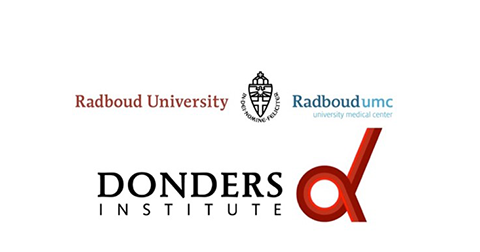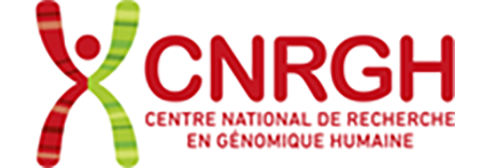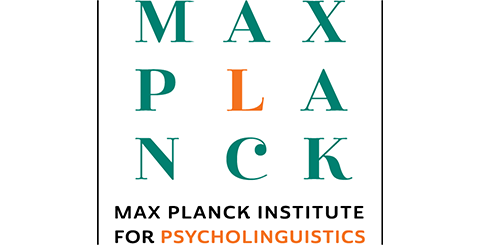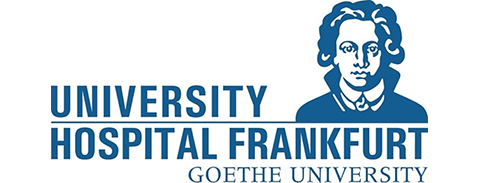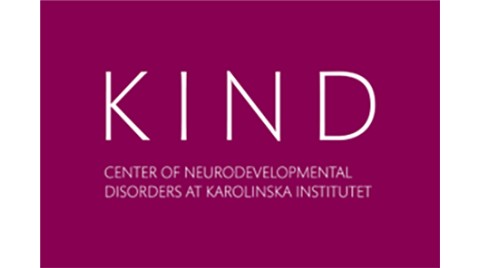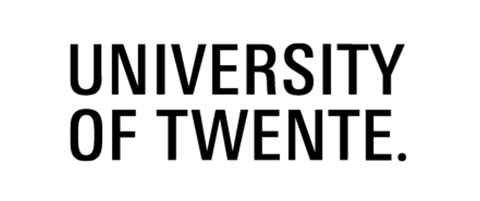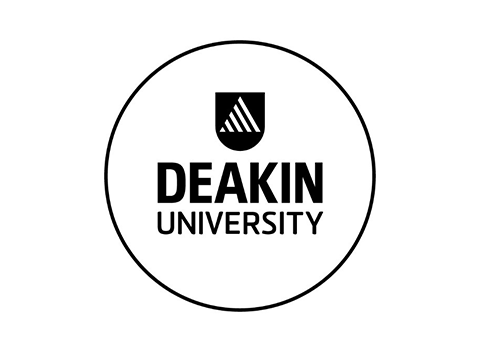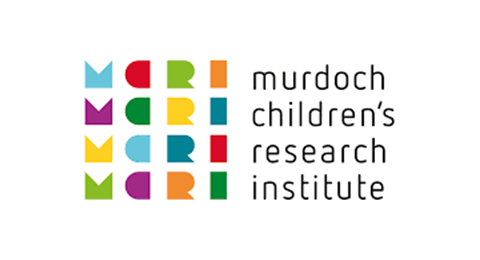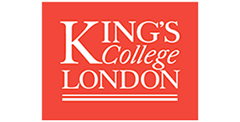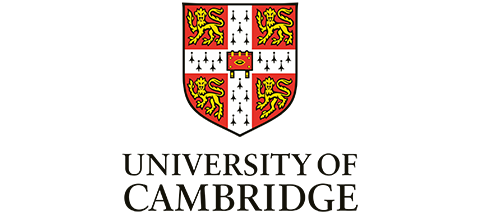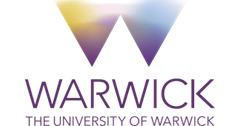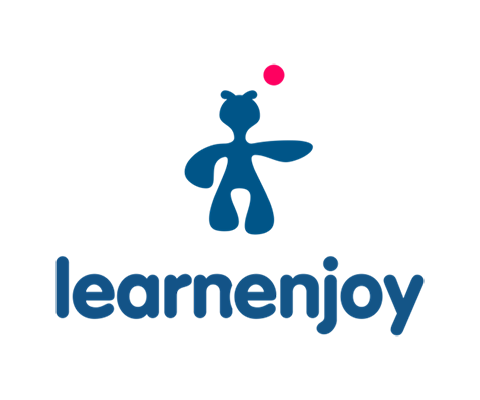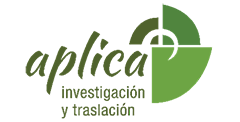The R2D2-MH consortium
R2D2-MH is a highly interdisciplinary consortium that gathers major universities and research institutions, Small and Medium Enterprises (SMEs) as well as international associations, bringing expertise in fundamental and applied research in neurosciences, public involvement, computational model and tool development, human sciences and communication.
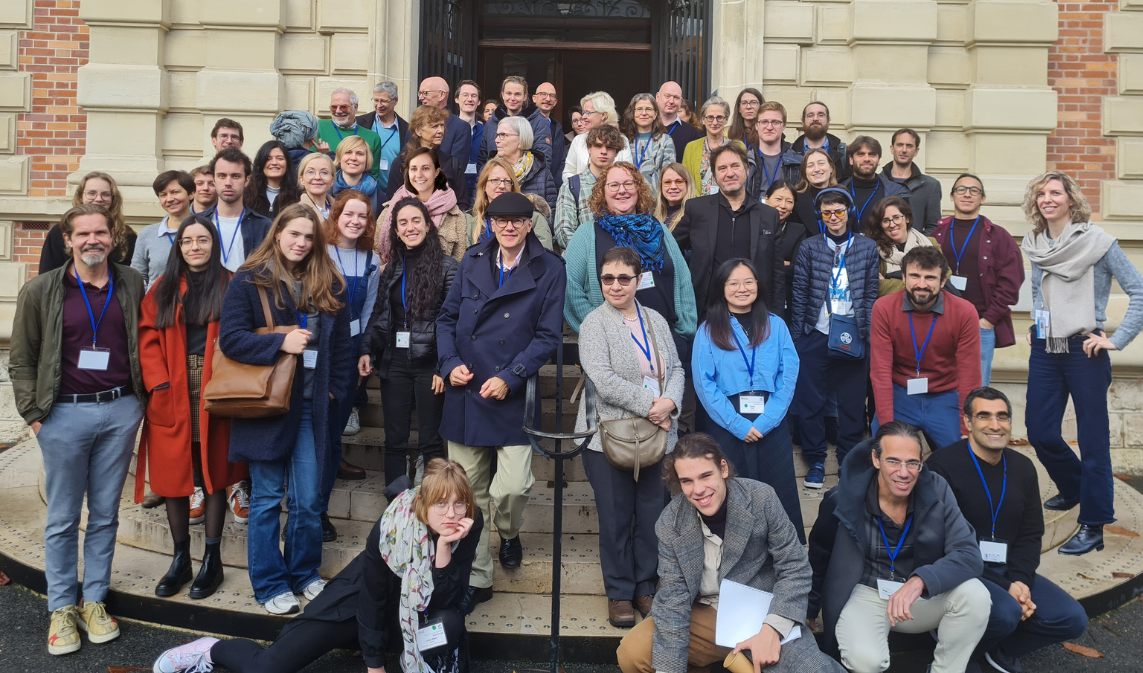
The R2D2-MH consortium at the general assembly meeting in Paris in November 2023.
Universities and research institutions

Institut Pasteur
Institut Pasteur (IP) is a private, non-profit foundation with the mission to help prevent and treat diseases and is involved in several major international projects and partner with the main international scientific authorities, research institutions, foundations, universities, and other private actors worldwide. The “Human Genetics and Cognitive Functions” laboratory is led by Prof. Thomas Bourgeron and gathers geneticists, neurobiologists and psychiatrists studying the genetic susceptibility to neurodevelopmental conditions. As coordinator of R2D2-MH, IP oversees the scientific and administrative implementation of the project, focusing on scientific coordination between each Work Packages, leading to high quality collaboration among the consortium.
Radboud UMC
Radboud University Medical Center (RADBOUDUMC) and the Donders Institute for Brain, Cognition and Behaviour are leading Dutch institutes for medical research, with several groups specialized in top-level clinical care and research in ASD, ADHD, and related neuropsychiatric conditions over the lifespan. Researchers have full access to all necessary facilities to conduct research in neurosciences, available at the Donders Centre for Cognitive Neuroimaging and which include 1.5, 3 and 7T scanners, and a mock scanner. In R2D2-MH, the groups of Profs. Christian Beckmann and Jan Buitelaar will lead the development of statistics and predictive modelling, building on cohort data, with a focus on data harmonization and management, analysis infrastructures and advanced statistical analysis, with the aim to identify biomarkers for predictive models towards MH outcomes.
Trinity College Dublin
Trinity College Dublin (TCD) is Ireland’s No.1 University and is ranked joint 98th in the World by the QS World University Ranking 2023. In R2D2-MH, the contribution of TCD will be dual. First, the Autism and Neurodevelopment Research Group led by Prof. Louise Gallagher, which uses a multi-methodological and deep-phenotyping research approach to understand autism and related rare genetic conditions, will lead research examining genetic and environmental influences on risk and resilience in neurodiversity, including the RaDiaNT study which investigates a rare genetic condition called NRXN1 deletion. Second, via the PPI Ignite Office, TCD will contribute to the involvement of public and individuals in the project and training of R2D2-MH consortium via workshops.
National Centre for Human Genomics Research
The National Centre for Human Genomics Research (CNRGH) is a large-scale infrastructure for genetic and genomic studies. The CNRGH has developed state-of-the-art genomic technology platforms and, together with a strong bioinformatics capacity for data management, is able to sequence and analyse thousands of patients per year. The CNRGH has been involved in major discoveries in cancer, rare and complex diseases. The CNRGH publishes approximately 70 papers per year. As part of R2D2-MH, the CNRGH will produce whole genome sequencing and genotyping data on the different cohorts of the R2D2 project. The CNRGH will collaborate with Institut Pasteur to support subsequent data analysis.
Max Planck Institute for Psycholinguistics
The Max Planck Institute for Psycholinguistics (MPIP) in Nijmegen is entirely devoted to studying languages. Embedded within the Language and Genetics department, Prof. Beate St Pourcain leads the MPIP Population Genetics of Human Communication Research group. Her group aims to decipher the aetiological mechanisms shaping developing language and social skills during infancy to adolescence, as captured by common genetic variation. Utilising this knowledge, the group seeks to identify and characterise the trajectories that lead from early childhood language and social skills to later-life health, educational and social outcomes. To the R2D2-MH project, MPIP will bring knowledge of population genetics and structural equation modelling techniques. This expertise will help identify risk and resilience factors related to social behaviour when studying individuals with mental health conditions and their relatives.
Goethe University Hospital Frankfurt
The Department for Child and Adolescent Psychiatry at the Goethe University Hospital Frankfurt (GUF) is a center of excellence for diagnosing and treating mental health conditions. The Laboratory for Neuroimaging, headed by Prof. Christine Ecker, investigates the neurodevelopmental underpinnings of neurodevelopmental conditions such as autism, and the development of biomarkers using a multidisciplinary approach that includes imaging, genetics, and clinical research. With over two decades of research experience, both at King’s College London and GUF, Prof. Christine Ecker has been involved in several large European research collaboration on autism (e.g. AIMS-2-Trials, STIPED). Within R2D2-MH, GUF leads will lead the work on the identification of neurobiological signatures of risk and resilience in the developing brain.
Assistance Publique des Hôpitaux de Paris
The Excellence Center for Autism & Neurodevelopmental Disorders in Île-de-France (InovAND) at Assistance Publique des Hôpitaux de Paris (APHP) brings together clinical and scientific teams, family and international associations with the common aim to better understand neurodevelopmental diversities and improve the life of individuals and their families. Its aim is to establish links between prematurity, genetic abnormalities and NDDs and to understand the genetic and epigenetic determinants of autism and more generally of NDDs. InovAND also collaborates with the Institut Pasteur, the FondaMental and Neurospin foundations, the Institute of Psychiatry and Neuroscience of Paris and the Centre for research on medicine, science, health, mental health, and society (Cermes3) of the National Centre For Scientific Research (CNRS). In R2D2-MH, the group of Prof. Richard Delorme at APHP will contribute to the development of real-world models and tools.
Ben-Gurion University of the Negev
Ben-Gurion University of the Negev (BGU) is one of Israel’s leading research universities and among the world leaders in many fields. It has around 20,000 students and 4,000 faculty members and more than 100,000 alumni who play important roles in all areas of research and development, industry, health care, the economy, society, culture and education in Israel. Dr. Eitan Bachmat is the lead Principal Investigator of BGU in the R2D2-MH project and will bring expertise in and contribute to the development of digital and computational tools in support of child development screening and care and the analysis of resilience.
Aarhus University
The Department of Biomedicine at Aarhus University (AU) aims to gain a better understanding of human conditions at the molecular and cellular level, by bridging the gap between natural science and clinical medicine, with a focus on identifying genes that confer risk or resilience in the context of mental health and translating the genetic insights to advance precision medicine in psychiatry. In R2D2-MH, Prof. Anders Børglum will contribute to the identification of risks and resilience factors in the context of NDDs and mental health. Additionally, AU is involved in the PGC Autism Group and will help creating a bridge bewteen the two projects.
University of Antwerp
The University of Antwerp is a young research university in Belgium. It has about 20,000 students and consists of 9 faculties. The Centre for Ethics is part of the department of philosophy, and specializes in meta-ethics, moral psychology, applied ethics, the history of moral philosophy, and political philosophy, with a special interest in disability studies and neurodiversity. Prof. Kristien Hens at UANTWERPEN is lead of the work that supports the creation and the workings the cocreation groups that will think with R2D2-MH researchers to ensure that the project’s outcomes fit the needs of neurodivergent people and their kin.
Karolinska Institutet
The Center of Neurodevelopmental Disorders at Karolinska Institutet (KIND) is a world leading clinical research hub aiming to improve outcomes for neurodivergent individuals and their families, focusing on science, development, and education. KIND was created in 2010 by the Region of Stockholm in collaboration with Karolinska Institutet and houses approximately 650 researchers, teachers, clinicians, and administrators. In the R2D2-MH project, KIND and the group of Prof. Sven Bölte will develop WHO International Classification of Functioning (ICF) Core Sets for risk and resilience in developmental diversity, identifying the factors most important to resilience and supporting neurodivergent individuals to thrive. It is envisioned that these Core Sets will create opportunities for better understanding, care, support, and research prerequisites for neurodivergent people.
The KI Research Institute
The KI Research Institute is an Israeli non-for-profit organization leading state-of-the-art computational health research with the core mission of making a significant impact on human health. The institute is creating impact by supporting data-driven decision making in public health through improving guidelines, aiding policy makers and providing new insights and tools to clinical experts. In R2D2-MH, Drs. Pini Akiva and Yair Sadaka and colleagues will contribute to the development of a platform that enables gathering the most important and relevant medical information and health parameters prior to the consultation, the data being efficiently presented to the health care provider thanks to accompanying decision support algorithms. The platform will also support the collection of data for research purposes. The overall aim is to open the platform to clinicians and healthcare providers as well as individuals with developmental diversities interested in using the app. In addition KINS will carry out studies to investigate risk and reselience factors of neurodiverse conditions.
Human Technopole
Human Technopole is a new international research institute in Milan, Italy, focused on life sciences and biomedicine, located at the heart of the Milan Innovation District. Human Technopole’s overarching mission is to improve human health and well-being by carrying out research in life sciences to develop novel approaches in preventive and personalised medicine. At HT, the Testa Group harnesses the power of cell reprogramming to study the molecular basis of human neuro-psychiatric diseases, by chasing the dynamics of their unfolding in physiopathologically relevant models and straddling multiple scales of analysis from single cell resolution to organismal function. In R2D2-MH the Testa Group will investigate the molecular processes that shape human brain development across a wide range of vulnerabilities and resilience for mental health, harnessing brain organoid modelling and the unprecedented scale afforded by the HT Automated Stem Cell and Organoid Facility to integrate clinical data with high resolution multiomic profiling.
University of Twente
The department of Human and Institutional Behavior studies behaviour change from a cross-disciplinary perspective that includes psychological, social, communicative and governmental theories, with intensive use of the latest technological innovations as a method of understanding behaviour. Think, for example, of machine-learning, artificial intelligence (AI), text mining, human-media interaction, or experience-sampling. Tech as a means of facilitating behaviour change is also used and studied. Examples of this include value-based and creative design, the use of sensors in influencing behaviour, virtual reality, gamification, and, of course, apps. In R2D2-MH, the University of Twente (UTWENTE) will be involved in the development of the positive psychology App for parents of children with NDD.

The University of Queensland
The Child Health Research Centre at The University of Queensland (UQ) closely collaborates with the Institute of Molecular Bioscience to explore the role of genetic factors in the onset and longitudinal course of childhood mental conditions. Two ongoing projects will be part of the R2D2-MH project. The first is a national randomized clinical trial of non-invasive brain stimulation (rTMS) to improve social communication in children and adults with autistic spectrum disorders led by Deakin University (ACTRN12620000890932, CIA Enticott). The second is the improving outcomes in mental health study that follows families with children referred to child development services over 2 years. Both studies also include the collection of DNA providing the opportunity to explore whether genetic and epigenetic factors are associated with response to care.
Deakin University
The Cognitive Neuroscience Unit at Deakin University (DEAKIN) is based within the Faculty of Health at Deakin, and strives to provide the latest understandings in social, cognitive, and affective human neuroscience. It leads a nation-wide clinical trial in autism that will provide DNA to this project to explore whether genetic and epigenetic factors are associated with responses to intervention, and will contribute expertise in cognitive neuroscience, clinical psychology, and neurodevelopment. In R2D2-MH, DEAKIN will be involved in the identification of genetic protective and resilient factors in the context of MH outcomes.
Murdoch Children's Research Institute
As Australia’s largest child health research centre, Murdoch Children’s Research Institute (MCRI) brings together a team of more than 1,400 talented researchers dedicated to making discoveries to prevent and treat childhood conditions. The Speech and Language group led by Prof. Angela Morgan within the Genetics Theme at MCRI works on better understanding genotype- and speech and language phenotype correlations and has been internationally recognised for identifying genes associated with severe speech disorder and for characterising speech and language in known genetic conditions. As part of the R2D2-MH project, MCRI will contribute to better understanding outcomes for individuals with NRXN1 deletions. This work forms part of a collaboration with Trinity College Dublin and University of Toronto.
King’s College London
The Institute of Psychiatry, Psychology & Neuroscience (IoPPN), King’s College London is one of the world’s leading research and training centres on mental health and neurodevelopmental conditions. The KCL R2D2-MH Team comprises PIs from the Sackler Institute of Translational Neurodevelopment, Department of Forensic and Neurodevelopmental Sciences, Department of Child and Adolescent Psychiatry, Department of Psychology, and the Centre for the Developing Brain, Department of Perinatal Imaging & Health. The team has expertise in a wide range of interdisciplinary science relevant to the Consortium’s work, ranging from novel neuroimaging methods used from foetal to adult development to longitudinal outcome studies and intervention trials. In R2D2-MH, KCL will be involved in the identification of neurobiological signatures of risk and resilience in the developing brain, with a focus on the first years of life.
University of Cambridge
The Autism Research Centre University of Cambridge (UNICAM) focuses on the understanding of the biomedical causes of autism and the evaluation of promising interventions for autistic people, to improve the health and well-being of autistic people and their families. Simon Baron-Cohen is a Professor in the Departments of Psychology and Psychiatry and Director of the Autism Research Centre in Cambridge and created the first UK clinic for adults with suspected Asperger Syndrome (1999) that has helped over 1,000 patients to have their condition recognized, and made major contributions to the fields of typical cognitive sex differences, autism prevalence and screening, autism genetics, autism neuroimaging, autism and technical ability. The Neurodevelopmental Research Group works to understand the genetic and social correlates of neurodevelopment and mental health, and is led by Varun Warrier, Assistant Professor in the Departments of Psychiatry and Psychology. In R2D2-MH, UNICAM, led by Varun Warrier and Simon Baron-Cohen, will contribute to the identification factors related to sex difference in the context of autism, neurodevelopment, and mental health.”
Birkbeck University of London
The Centre for Brain and Cognitive Development (CBCD), Birkbeck, University of London is a world-leading centre dedicated to bringing together innovative methodology with theoretical advances to understand the developing brain. At CBCD, Emily Jones’s research interests centre on understanding the cognitive and neural mechanisms that drive variability in developmental trajectories. In this context, Prof. Emily Jones runs a number of prospective longitudinal studies of neurodevelopment in infants, and directs electrophysiological and eye-tracking acquisition across several large-scale European and Global Health studies of children and adults with neurodevelopmental conditions.
University of Geneva
As part of the Department of Psychiatry at the Geneva University (UNIGE), the Autism Brain and Behavior group focuses on the understanding of the development of young children with autism and the development of tools for early detection and monitoring. The group of Prof. Marie Schaer has contributed to the development and validation of biomarkers based on eye-tracking and brain imaging to monitor the evolution of children with autism. In R2D2-MH, UNIGE will lead the development and validation of novel video-based markers and contribute to the development of the tools and apps aimed at children with NDDs and their parents.
University of Warwick
At the University of Warwick (UW), the Research Group led by Prof. Dieter Wolke is within the Lifespan Health and Wellbeing Research stream and investigates perinatal and early childhood risk and their effect on longterm outcome. The work achieved so far has been highly cited and highly impactful in having changes national and international guidelines of follow-up care for preterm children. In R2D2-MH, UW will work on new approaches to investigate how environmental factors may protect against the adverse effects in children who are more likely to be neurodiverse. To that end, biomaterial for genotyping of the Bavarian Longitudinal Study will be collected.
Advisory Boards in R2D2-MH
R2D2-MH will be supported and advised by 5 boards that will help the project partners implement the project and deliver real-world results and outcomes that will be uptaken by end-users:
- Scientific Advisory Board (SAB) composed of 6 international experts in the fields of Psychiatry, Informatics, Genetics, Neurobiology, Epidemiology
- Adult Co-Creation Group: neurodivergent adults and parents of neurodivergent children co-developing some of R2D2-MH research outcomes
- Adolescents Co-Creation Group: neurodivergent adolescents co-developing some of R2D2-MH research outcomes
- Stakeholder Innovation Management Board (SIMB), consisting of experts from academia and SMEs/Industry partners
- Stakeholder Advisory Board (StakeAB), consisting of representative of stakeholders from diverse sectors organization types, location, and socio-economic background
Small and Medium Enterprise (SMEs) and industrial partners
ARTTIC Innovation GmbH
ARTTIC Innovation GmbH (AI) is a spin-off of ARTTIC SAS and subsidiary of the PNO Group, one of the biggest consultancy companies for publicly funded research and innovation projects. In close to 33 years, ARTTIC set-up and managed more than 400 projects in EU funding programmes from FP-2 to Horizon Europe. ARTTIC Innovation GmbH builds on this experience and bundles the company’s activities in Germany, which have been built and continuously strengthened since 2006. In R2D2-MH, AI leads the communication and dissemination activities as well as the exploitation strategy, notably by supporting the protection of new intellectual property, engaging key stakeholders and defining the roadmap towards exploitation of the project’s results and outcomes.
Learn Enjoy
LearnEnjoy is a company developing applications to enhance children’s development and knowledge. The technical team of LearnEnjoy is expert into apps development in the fields of Education and Health. LearnEnjoy’s role in the R2D2-MH project is to design and develop the Positive Psychology App for parents of children with autism and NDD to increase their well-being and contribute to measuring the impact of positive psychology on resilience for parents of children.
APLICA
APLICA is a cooperative devoted to social research in health and welfare, staffed by professionals with background in sociology, political science and public health. APLICA offers services based on methodological rigour and scientific excellence, and identifies itself with principles and values redounding to social assets. Our compromise is to contribute to the knowledge generation and to enable its return to society, promoting changes to improve communities and people’s lives. In R2D2-MH, APLICA will contribute to involving stakeholders in the research through the co-creation groups planned the project. APLICA has experience involving patients, civil society and citizens in social and health research through participatory methods.
Roche
Roche is a global pioneer in pharmaceuticals and diagnostics, and the world’s largest biotech company, focused on advancing science to improve people’s lives, with marketed medicines in oncology, immunology, infectious diseases, ophthalmology and diseases of the central nervous system. Dr. Chris Chatham is a computational and cognitive neuroscientist working in an applied research & development role for late-stage neuroscience. With respect to R2D2-MH, Dr. Chris Chatham brings extensive experience in developing research findings into tools that can be employed for testing a new generation of medicines for the mind.
International organizations representative of
individuals living with NDDs
In addition to the 26 consortium partners and associated partners, two European associations representing individuals living with NDDs are involved in the project.
Autism Europe
Autism-Europe aisbl (AE) is an international association whose main objective is to advance the rights of autistic people and their families and to help them improve their quality of life. It ensures effective liaison among almost 90 member autism organisations from 38 European countries, including 25 Member States of the European Union, governments and European and international institutions. AE plays a key role in raising public awareness and in influencing the European decision-makers on all issues relating to autism. This is achieved through representing autistic people towards all European institutions and decision-makers, promoting awareness on the appropriate care, education, and well-being of people on the autism spectrum, and promoting the exchange of information, good practices and experience. In R2D2-MH, AE will support the co-creation process and the involvement of individuals living with autism or NDDs and their families in the project.
ADHD Europe
ADHD Europe represents individual, professional and 32 organisational members across Europe who are self-support patient ADHD advocacy NGOs (Non-Governmental Organisations). The main objectives are to promote evidence-based treatment, information and ADHD Awareness at European level, support the efforts of its members who provide support for children, adolescents, adults, parents and families as well as for their teachers, employers and other professionals who work with them across Europe. This includes access to education, medical help and employment, as well as support in adulthood if needed, working together towards interventions for children, adolescents and adults living with ADHD, their families, professionals and decision makers. In R2D2-MH, ADHD Europe will share voices and experiences of the communities to the researchers and partners involved in the project and will participate in the cocreation groups and the involvement of young people and adults with NDDs working towards the development of new tools.
